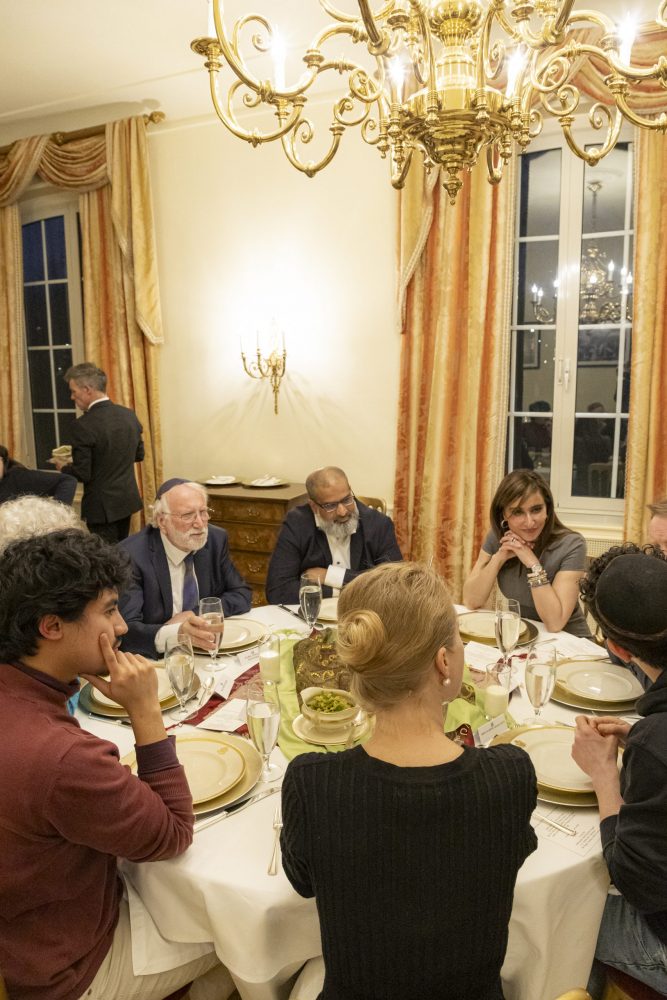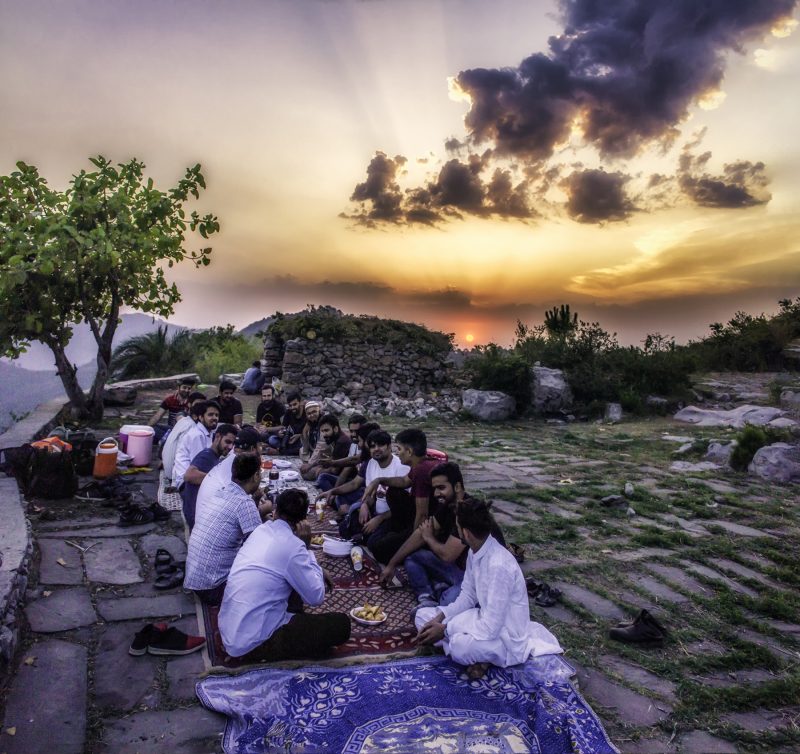

Religion and food are closely-related topics. Shared meals, often as part of special occasions, provide an important element of religious community. Sharing food and other gifts with family, neighbours, or needy people is a common way to celebrate.
Fasting (avoiding food for a specified period) is also a feature of many religious traditions. People deny themselves the ordinary necessities of life for a time of remembrance and thankfulness.
Jews and Muslims both follow laws about what they can eat and how food is prepared. In particular, there are rules about how animals used for meat are slaughtered and prepared. See Khasrut (Judaism) and Halal (Islam).
Christians do not follow the very detailed Jewish laws about food; nor do they follow the laws in Islam that forbid pork and alcoholic drinks.
Christians and Muslims do share food in social settings. However, Orthodox Jews could/would not eat food prepared in a Christian or Muslim kitchen. Christians and Muslims could share Jewish food.
These different, sometimes contrasting, attitudes to food are important to consider for life in a diverse society.
Text adapted from "The Abrahamic Faiths- an introduction", an Interfaith Explorers guide
Ambassador Shefali Razdan Duggal hosts an interfaith iftar at the U.S. Ambassador's Residence during Ramadan at The Hague in the Netherlands on 26 March 2024 by US Embassy The Hague, Public Domain




